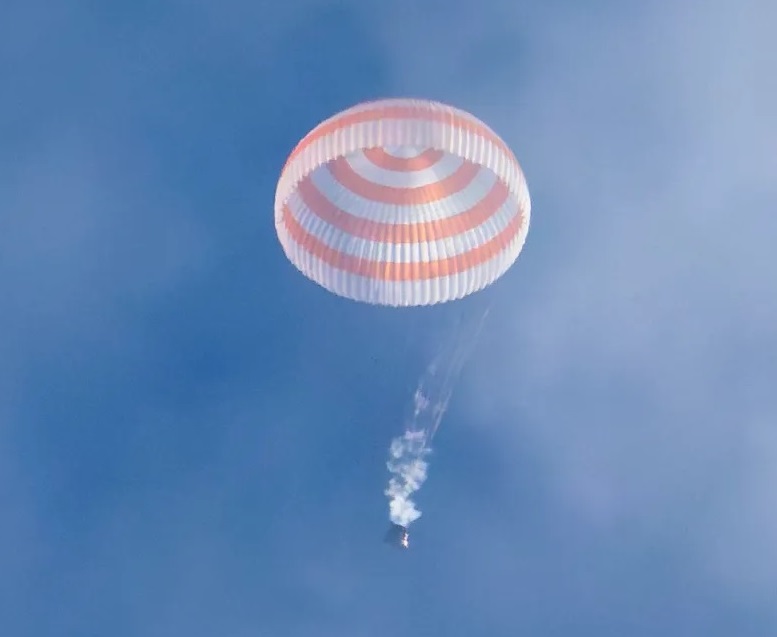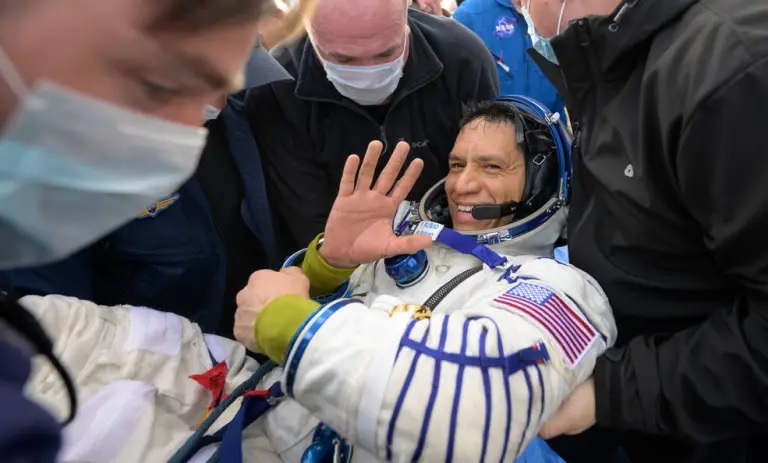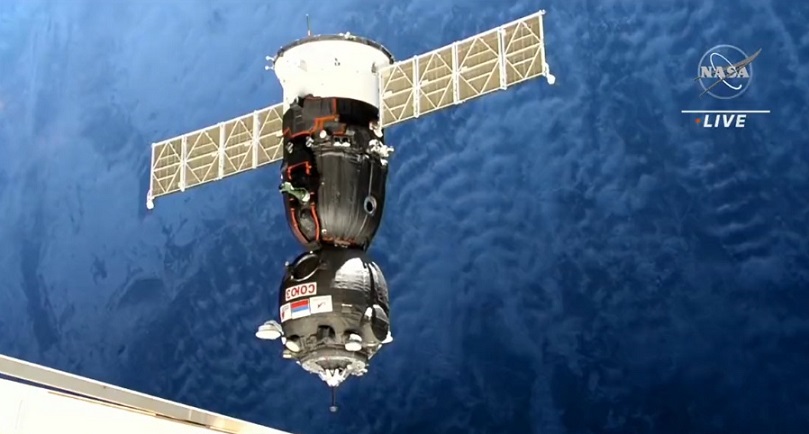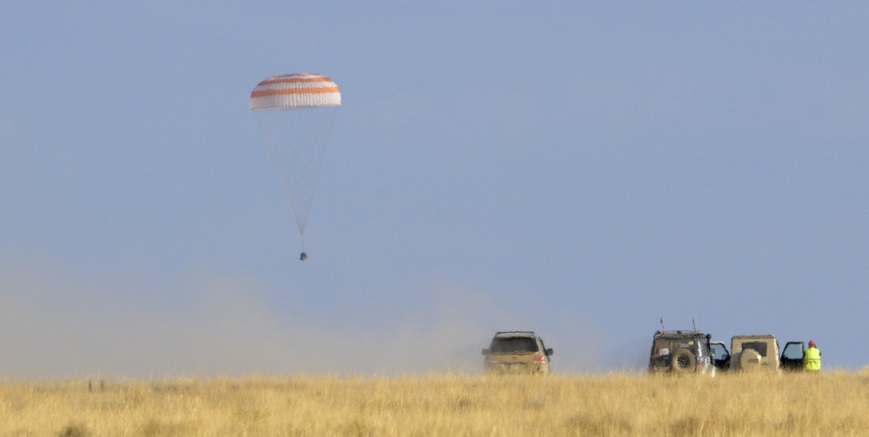During his record-breaking mission, Frank Rubio spent many hours on scientific activities aboard the space station, conducting a variety of tasks ran
During his record-breaking mission, Frank Rubio spent many hours on scientific activities aboard the space station, conducting a variety of tasks ranging from plant research to physical sciences studies.
After spending an American record-breaking 371 days in space, NASA astronaut Frank Rubio safely landed on Earth with his crewmates Wednesday.

Rubio departed the International Space Station, along with Roscosmos cosmonauts Sergey Prokopyev and Dmitri Petelin, at 3:54 a.m. EDT, and made a safe, parachute-assisted landing at 7:17 a.m. (5:17 p.m. Kazakhstan time), southeast of the remote town of Dzhezkazgan, Kazakhstan, reported NASA.

“Frank’s record-breaking time in space is not just a milestone; it’s a major contribution to our understanding of long-duration space missions,” said NASA Administrator Bill Nelson. “Our astronauts make extraordinary sacrifices away from their homes and loved ones to further discovery. NASA is immensely grateful for Frank’s dedicated service to our nation and the invaluable scientific contributions he made on the International Space Station. He embodies the true pioneer spirit that will pave the way for future exploration to the Moon, Mars, and beyond.”
Rubio launched on his first spaceflight on Sept. 21, 2022, alongside Prokopyev and Petelin. Rubio’s spaceflight is the longest single spaceflight by a U.S. astronaut, breaking the record previously held at 355 days by NASA astronaut Mark Vande Hei, reported NASA.

During his mission, Rubio completed approximately 5,936 orbits and a journey of more than 157 million miles, roughly the equivalent of 328 trips to the Moon and back. He witnessed the arrival of 15 visiting spacecraft and the departure of 14 visiting spacecraft representing crewed and uncrewed cargo missions.

Rubio’s extended mission provides researchers the opportunity to observe the effects of long-duration spaceflight on humans as the agency plans to return to the Moon through the Artemis missions and prepare for exploration of Mars.

Rubio, Prokopyev, and Petelin launched aboard the Soyuz MS-22 spacecraft but, due to a coolant leak, returned to Earth aboard the Soyuz MS-23. The affected Soyuz MS-22 capsule returned without its crew after the Soyuz MS-23 capsule launched as a replacement on Feb. 23, 2023.
All Credit To: NASA


